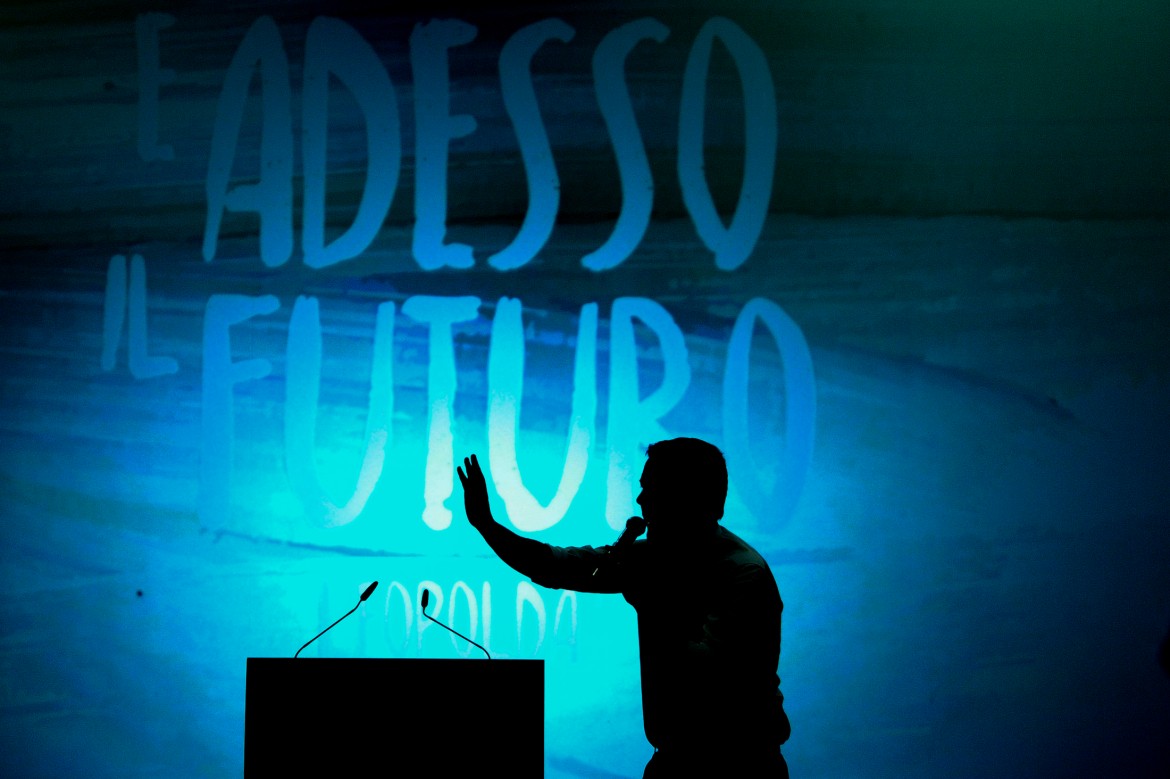Reportage
‘Disaster’ for the Democratic Party and the country
Ex-Premier Matteo Renzi has so far not uttered the word ‘resignation’ with respect to his Democratic Party leadership, but with polls suggesting an unthinkable 18 percent for the governing party, his days may be numbered.

Matteo Renzi arrived at the PD headquarters in Largo del Nazareno on Sunday evening while the polls were still open. He had circulated the news that he would stay in Florence to follow the vote count, but the first signs of the disaster made him get in the car and drive to Rome, where the PD higher-ups had all gathered. The mood was dark. It’s a disaster, they said.
The results are worse than the worst predictions, both for the country and also for the Democratic Party. They are the casualty figures of a war that was lost catastrophically. When speaking about Renzi, even the word “resignation” is no longer taboo. “He will decide,” says Ettore Rosato on Porta a Porta during the night.
At the same time, Renzi’s supporters in Largo del Nazareno are giving him cover: Of course, we expected this. Of course, the terrible result was indeed a foregone conclusion.
What was in the air could be seen on WhatsApp: already in the afternoon, PD leaders were circulating photos of bitter winters and lonely fighters trudging through the snow. Later, everyone seemed to have lost their sense of humor. The 40 percent they got in the European Parliament elections was now a distant memory, and even the defeat in the 2016 referendum, again with 40 percent, was a good result compared to what lay ahead in the longest night for the Democratic Party since its birth. Veltroni’s 32 percent in 2008 is now a dream, and even Bersani’s 25 percent in 2013, mocked at the time—the famous “non-victory”—is now far from reach.
The first projections are saying 18 percent. It is not just a defeat, “it is a disaster.” Gathered in Renzi’s office, turned into a war cabinet, were PD president Matteo Orfini, Minister Luca Lotti, deputy secretary Maurizio Martina, chief of staff to the secretary Lorenzo Guerini, spokesman Matteo Richetti and treasurer Francesco Bonifazi.
Eighteen percent was also the number given in some polls that were circulating in the afternoon, immediately declared “fake” by the pollster Alessandra Ghisleri to whom they were being attributed. In fact, the first exit polls gave Renzi a tiny bit of relief—even though they still had the 5 Star Movement at 30 percent and the Lega above Forza Italia.
In recent days, the Secretary of the Democratic Party had said that he would remain in place until 2021, but privately he had set the worst possible result for which he would not resign at 20 percent. The exit polls were showing results in the range between a tragic 17.50 percent and a less dramatic 23 percent (SWG).
But with the first projections from the vote count came the end of all hopes. Eighteen percent is bad on a whole new level, and now the Parliament looks to be deadlocked, without any possible majority. Renzi and his supporters are resigned to this fact. They say that now the responsibility for finding a majority is up to those who have received the most votes (which means many, many more votes than the Democratic Party), and that the Democratic Party “will not be anybody’s crutch”—no other option remains than to be in “the opposition.”
But Renzi has refrained so far from uttering the word “resignation.” The factional struggle inside the PD would wait for the morning. Some had already given his resignation on March 5 as certain. For Gianni Cuperlo, the lowest acceptable result would have been 22 percent. “With these numbers, the sum of the votes for the Democratic Party, Insieme and Liberi e Uguali would add up to the same result as in 2013,” Rosato theorized. The night ahead would prove him wrong on that as well. In any case, it was the Rosatellum, the election law bearing his name, that soured the relationship between the PD and Liberi e Uguali irreparably.
But the night had even more nasty surprises ahead. The alliance led by former prosecutor Piero Grasso went, in turn, from a hopeful first part of the night, with exit polls that had them as high as 6 percent, to the cold shower of the first projections, which cut their numbers down to 3.5 percent—only a little above the threshold to enter the Parliament. In 2013, the SEL (Left Ecology Freedom) alone got 3.2 percent.
None of the LeU leaders could be seen at the Sala da Feltre in the Trastevere for a long time. The first reaction by Alfredo D’Attorre, on Bruno Vespa’s TV show, was really nothing more than a prayer: “I hope it will be like in 2013, when the exit polls proved to be very different from the actual vote totals.”
The night belonged to the 5 Star Movement. On the side of the defeated, quarrels were already starting: “The Democratic Party is not interested in a government with M5S,” Rosato clarified. “But that means pushing the 5 Star Movement toward the Lega. It should be an open discussion, and I believe that the issue cannot fail to be of interest to the Democratic Party as well,” D’Attorre replied.
The LeU seemed to be offering Grillo’s people a helping hand—but at that hour of the night, they had very little in terms of numbers to be of any help to the new winners.
Originally published at https://ilmanifesto.it/renzi-disastro-ma-non-molla-leu-delude-e-sulla-soglia/ on 2018-03-05
